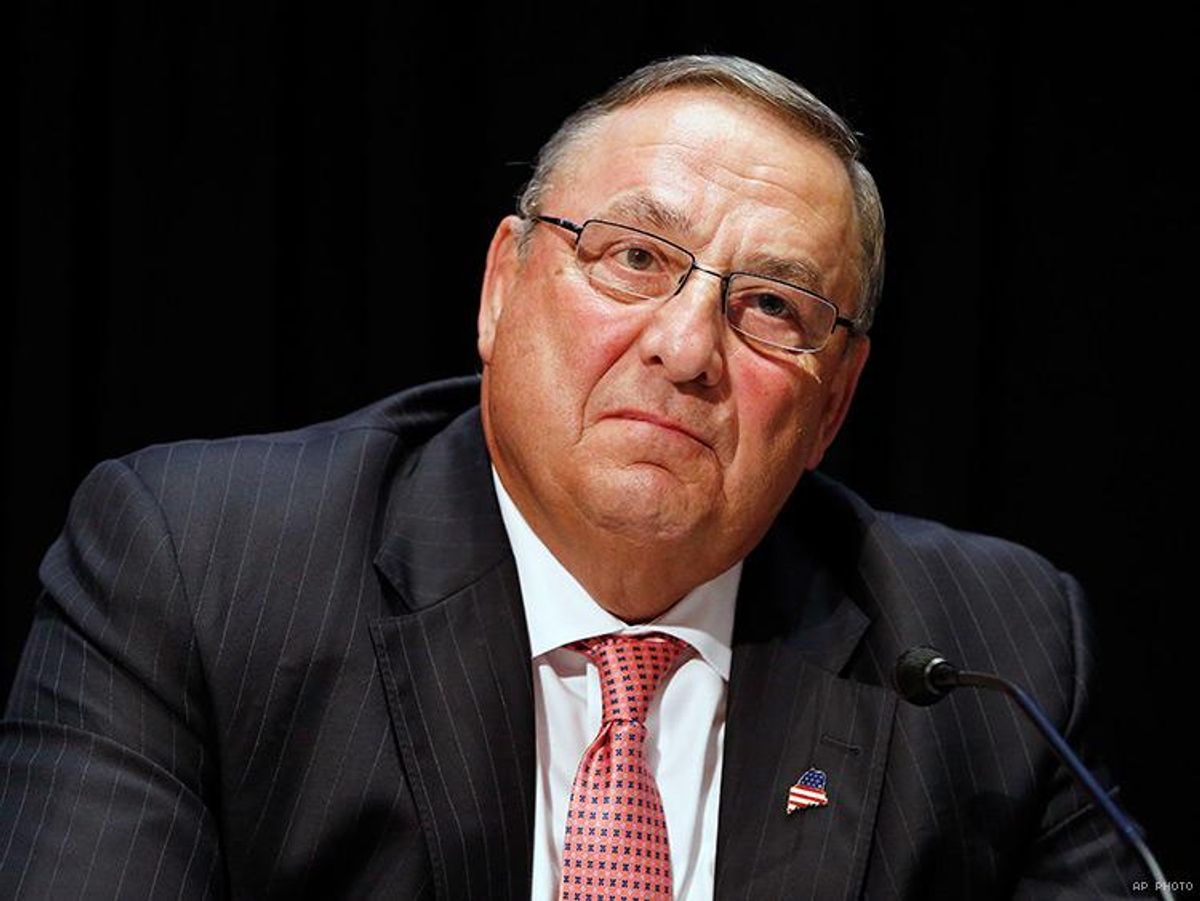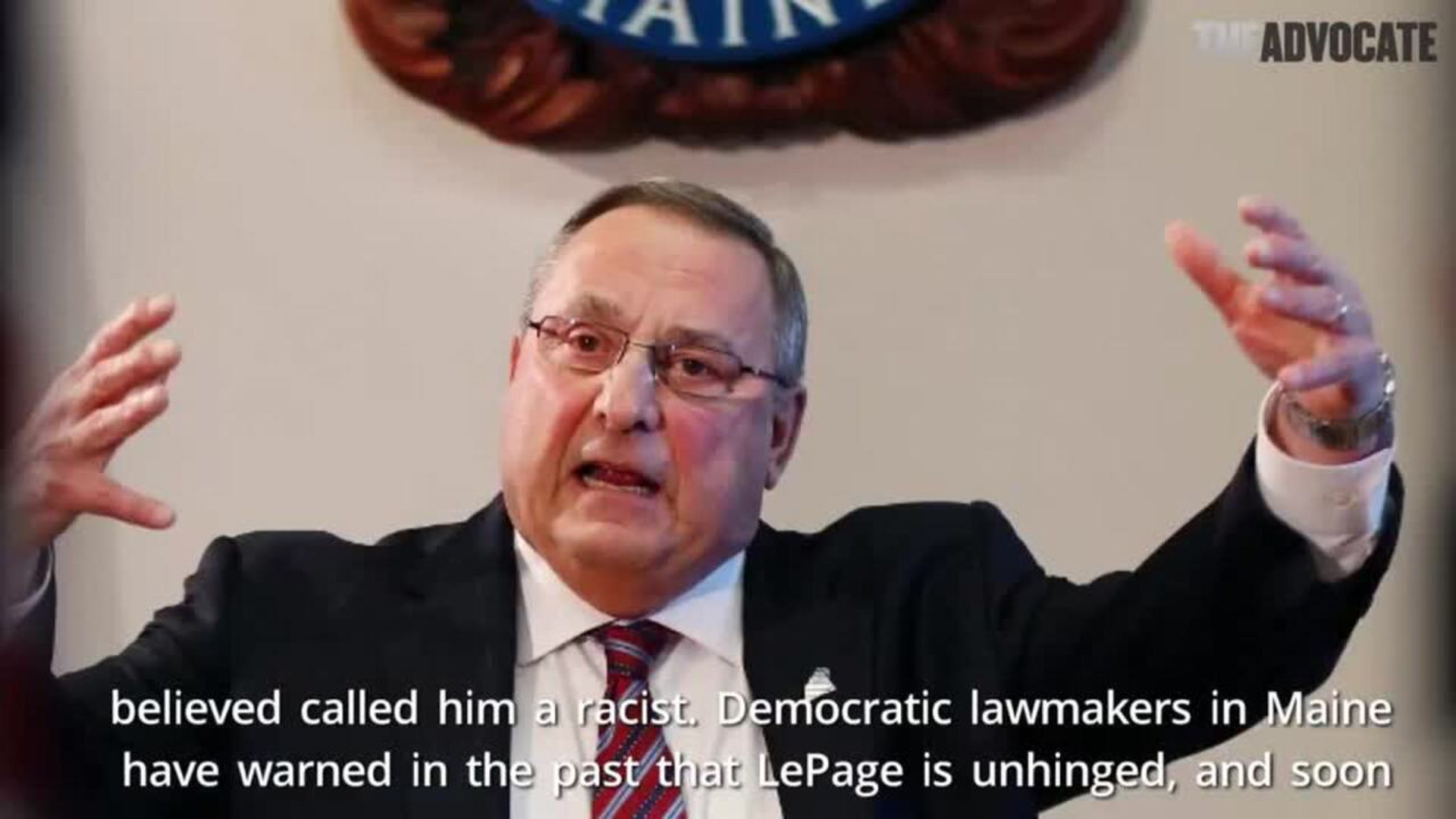All of this morning's headlines focused on Maine Gov. Paul LePage apparently apologizing for an angry voice mail he left a state lawmaker, suggesting during a radio interview that he might even resign.
By the end of the day, the headlines were about LePage taking back the idea of quitting.
Lost in the political intrigue is that LePage didn't apologize for using a gay slur. (He repeatedly called Rep. Drew Gattine a "cocksucker.") He's instead apologizing for losing his temper. LePage said he nearly couldn't breathe after a reporter told him Gattine had said the governor is racist.
LePage also certainly isn't apologizing for endorsing racial profiling. In a news conference Friday after LePage got caught leaving that short-of-breath, furious voice mail, the governor defended himself by saying "people of color" are "the enemy."
"You've been in uniform? You shoot at the enemy," he said, according to the Portland Press-Herald. "You try to identify the enemy, and the enemy right now, the overwhelming majority of people coming in, are people of color or people of Hispanic origin."
LePage has repeatedly blamed the state's heroin problem on black and Hispanic people who he says are coming from other states to traffic drugs in Maine. He did it again today. During the radio interview on WVOM that had pundits wondering about a resignation, LePage described again how his staff collects news clippings about every drug arrest, being sure to find photos of the offenders. This, he said, has taught him something important.
"What I did, is every drug arrest, we get the story and the people, and when it comes to meth labs, they're essentially all Maine white people," he said. "When it comes to the heroin epidemic it's just the opposite. Whether it's right or wrong -- and I'll leave you to make that judgment -- but I spoke fact."
One way of fighting the drug problem, LePage argued, is to target people of color who enter the state.
"It's very clear that I say out of state, because we have a minority population in Maine, and they're not involved," he said.
It all sounds very Trump-like. Donald Trump wants to ban Muslims from entering the country because, he says, terrorists are usually Muslims. Like LePage, Trump calls that a practical solution based on facts. Others, even within his own party, call it Islamophobic. LePage is a big Trump backer, by the way, having endorsed him early in the primary season.
LePage is aware that what he's saying is considered racist, though he's equally certain he's not racist.
"Now they're saying, 'Well, you can't do this,' every day they're saying, 'You can't do it because of the racially charged atmosphere in our country,'" he said. "But the same token is all lives matter. That's the bottom line: All lives matter. And the majority of people dying are Mainers."
That reference to "All Lives Matter" on its own would be considered racist by some. It's the mantra of those who oppose the Black Lives Matter movement. An offshoot of the phrase -- White Lives Matter -- is an organization that the Southern Poverty Law Center just classified as a "hate group."
This is not the first time LePage zeroed in on race as a predictor of whether a person is a drug trafficker. He first got into trouble when he suggested that black men were coming from other states to deliver heroin, then added, "Incidentally, half the time they impregnate a young white girl before they leave."
After that doozy, LePage claimed he'd meant to say "a young Maine girl" instead of "white girl." But he also said it's true that most women in Maine are white, so he was factually correct either way.
The governor issued a much less apologetic statement before his radio interview. In it, LePage acknowledged he'd purposely called Gattine "the worst word I could think of." He didn't apologize to LGBT people. He didn't take back the proposal to racially profile people entering Maine.
"I make no apology for trying to end the drug epidemic that is ravaging our state," he said. "Legislators like Gattine would rather be politically correct and protect ruthless drug dealers than work with me to stop this crisis that is killing five Mainers a week."













































































